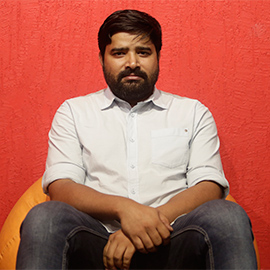After Modi's speech, Rahul & Cong leaders ask for refresher course on PoK

Prime Minister Narendra Modi's reference to Pakistan-occupied Kashmir (PoK) and Balochistan during his Independence Day speech from the ramparts of the Red Fort created curiosity amongst many Congress leaders. They, along with party vice-president Rahul Gandhi, sought clarity from party veterans on the sequence of events that led to Pakistan occupying this part of Jammu and Kashmir.
This happened during a routine closed-door meeting featuring Rahul and senior leaders at the AICC headquarters at 24, Akbar Road, New Delhi on 15 August.
It was for the first time that the Gandhi scion hoisted the flag at the party headquarters, as party president Sonia Gandhi has been out of action for reasons of health.
Soon after hoisting the national flag, senior leaders went into a huddle to discuss the PM's 94-minute long speech, and discuss the Congress's strategy on the next course of action.
During this discussion, some party leaders, including Rahul, requested veteran Congress leaders to talk about the history of PoK for all those present. The aim was to understand the issue better and the history behind the creation of PoK.
Deputy Leader of the Opposition in the Rajya Sabha, Anand Sharma, then spelled out details about PoK's creation. Thereafter, the Leader of the Opposition in the Rajya Sabha, Ghulam Nabi Azad, took over and added more details, while former Prime Minister Manmohan Singh was the last to speak. Singh too shared crucial bits of information that led to PoK's coming into existence.
History of PoK
During the partition of India in 1947, the British gave princely states the right to either join India, Pakistan or remain independent. The then king of Jammu & Kashmir, Hari Singh, chose to remain independent.
Thereafter, rebellion broke out in the state due to oppression by the administration and on 21 October, Pashtun tribesman from the North West Frontier Province of Pakistan invaded the state to free it from the rule of Hari Singh.
Armed with modern artillery, the tribesman conquered Muzaffarabad and Baramulla, forcing Singh to seek military assistance from India on 24 October. The latter denied and laid the condition that only if the state joined India could it expect any military assistance.
Under pressure, Singh, on 27 October, signed the Treaty of Accession with India.
Soon after, the Indian military was airlifted to Kashmir, and even Pakistan mobilised its troops, resulting in a fierce battle between the two countries who had recently become independent. India was able to push the Pakistani army and Pashtun tribesman out of Baramulla and Uri, but Muzaffarabad, Gilgit and Baltistan were still under Pakistan's control.
Eventually, the United Nations intervened, leading to a ceasefire in 1948, which then led to a formal ceasefire line of the two parts of Jammu and Kashmir in 1949.
At the same time, Pakistan divided the territory under its control into two separately governed entities - Azad Jammu and Kashmir and Gilgit-Baltistan.
Twenty-three years later, in 1972, the Shimla Agreement led to the renaming of this ceasefire line as the Line of Control (LoC).
Cong crisis continues
Ever since Modi raised the Balochistan issue, the Congress appears a divided house, caught between a rock and a hard place. It was evident with the Congress's endorsement of Modi's views on Balochistan, through which it avoided being seen as taking a pro-Pakistan stance. But Congress leaders were heard taking a completely different position. They criticised the PM's reference to Balochistan and not mentioning Kashmir, which is witnessing one of the most violent protests in recent history.
As a result, the party was forced to adopt a line which was a complete U-turn from its original position, where it had backed Modi.
These developments have yet again put a question mark on the party's decision-making, and how it has not been able to effectively communicate its official line within its party ranks.
Even when it comes to Kashmir, several contrasting views have been articulated by party leaders. The latest one is that of former Union Finance Minister P Chidambaram, who suggested that the BJP be alienated and the Congress should join hands with the National Conference and the PDP to find a solution for Kashmir. The Congress, yet again, distanced itself from his comments, and called them his 'personal opinion'.
Reacting to Chidambaram's statement, Union Minister Venkaiah Naidu said: "Congress has once again displayed its insensitivity on J&K issue, its own leaders are not in consonance with it."
Edited by Shreyas Sharma
More in Catch
PM Modi's Balochistan offensive has got the Congress in a churn
Peacemaker Rahul Gandhi gets down to fighting Congress factionalism
Fearing 'anti-national' tag, Congress takes tough line on Kashmir
First published: 19 August 2016, 8:28 IST






![BJP's Kapil Mishra recreates Shankar Mahadevan’s ‘Breathless’ song to highlight Delhi pollution [WATCH] BJP's Kapil Mishra recreates Shankar Mahadevan’s ‘Breathless’ song to highlight Delhi pollution [WATCH]](https://images.catchnews.com/upload/2022/11/03/kapil-mishra_240884_300x172.png)

![Anupam Kher shares pictures of his toned body on 67th birthday [MUST SEE] Anupam Kher shares pictures of his toned body on 67th birthday [MUST SEE]](https://images.catchnews.com/upload/2022/03/07/Anupam_kher_231145_300x172.jpg)






